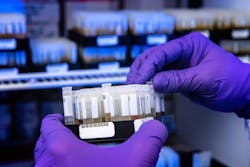Given the sustained increase in SARS-CoV-2 viral variants in the United States that are resistant to bamlanivimab administered alone, and the availability of other authorized monoclonal antibody therapies that are expected to work against these variants, the government, in coordination with Eli Lilly and Company, will stop the distribution of bamlanivimab alone, according to a news release from the Assistant Secretary for Preparedness and Response (ASPR) at the Department of Health and Human Services (HHS).
In this same vein, the U.S. Food and Drug Administration (FDA) recently updated the authorized fact sheet for healthcare providers for the bamlanivimab emergency use authorization (EUA). This update advised healthcare providers to consider the use of alternative authorized monoclonal antibody therapies that are expected to retain activity against circulating viral variants.
Using an alternative authorized monoclonal antibody therapy may reduce the risk of treatment failure should a patient be infected with a SARS-CoV-2 viral variant that is resistant to bamlanivimab alone. Alternative monoclonal antibody therapies that are currently authorized for the same use include bamlanivimab and etesevimab administered together and REGEN-COV, the FDA said.
ASPR said treatment sites will still be able to order bamlanivimab and etesevimab, to be administered together, or REGEN-COV from the authorized distributer following existing ordering and reporting procedures. Treatment sites also can order etesevimab alone to pair with the supply of bamlanivimab that a site already has available.
On November 9, 2020, Eli Lilly and Company received an EUA from the FDA for the investigational monoclonal antibody treatment bamlanivimab. The EUA allows healthcare providers to administer bamlanivimab to treat mild to moderate COVID-19 in adults and pediatric patients (12 years and older weighing at least 40 kg) with positive results of direct SARS-CoV-2 viral testing, and who are at high risk for progressing to severe COVID-19 and/or hospitalization.

